Roundtable: Placing mission before merger
Sticking to the plan and embracing cultural change underpin merger, writes David Blackman





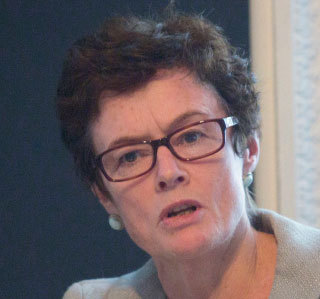
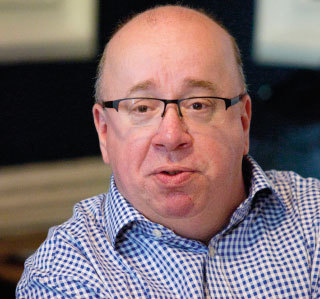



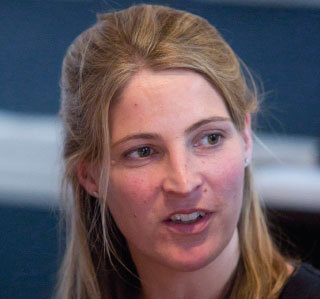







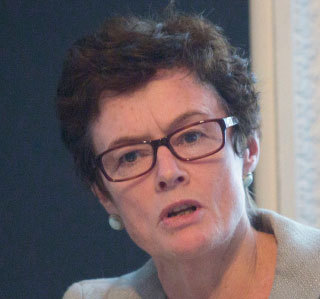
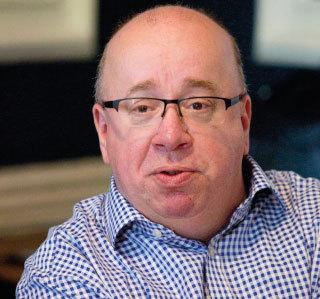



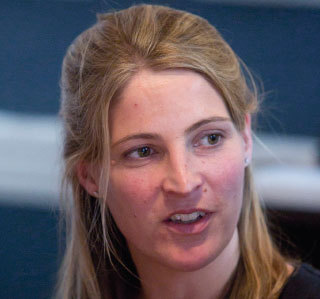



Pictutres by Belinda Lawley

The last year has seen ‘merger mania’ grip the housing association movement.
Among those closing in on completion are Affinity Sutton and Circle Housing, who have recently received approval from the Homes and Community Agency (HCA) to create a 127,000-home behemoth. Meanwhile East
Thames Group and London & Quadrant are working on their own tie-up that will create an 85,000-home landlord.
The tide of mergers is not confined to the capital either, with the likes of Spectrum and Sovereign, First Wessex and Sentinel, and a number of others in the north of England.
But the last year has also seen some high profile breakdowns.

Paul Tyrrell
Social Housing magazine brought together some of the sector’s leading figures at the centre of many of these recent efforts for a roundtable event in London, which was sponsored by law firm Capsticks.
What is driving this upsurge in merger activity, will greater scale deliver greater efficiency, and what are the potential pitfalls in the process?
‘More homes’
Paul Tyrrell, head of housing finance for England and Wales at RBS, says: ‘M&A moves in cycles and the catalyst tends to be government policy. At the moment you have rent reductions and an obsession with development, neither of which we expect to disappear before 2020.’
Elizabeth Froude, executive director resources at Genesis, which was in final stages of a merger with Thames Valley Housing before it was called off in the summer, says: ‘Most mergers have been about delivering more homes. In the new political environment that is exactly why we are doing it.’
Peter Walters, chief executive of First Wessex, agrees: ‘The first and foremost aim of merger is to create more homes. Efficiency is key to that.’
Mark Washer, group finance director at Affinity Sutton, says efficiency is a compelling reason for merger to be on the sector’s agenda.
‘If you accept that merger will deliver greater efficiencies, there should be more mergers in the sector because any organisation that is seriously considering value for money should have efficiency on its agenda.

Mark Washer
‘It shouldn’t be driven by personalities and retirement of chief executives. It should be driven by the board taking an overview of its own corporate objectives and whether they can be furthered by merger.’
Scale
While the government is clearly keen to see tie-ups between smaller and medium-sized associations, the new wave has been characterised by so-called ‘mega-mergers’, says Mark Everard, a director in Capita’s property and infrastructure team.
Alex Gipson, lending manager at Legal & General, says the figure of 1,500 HAs in this sector, cited by government, is ‘meaningless’ for the supply debate because many of those associations own too few properties to get involved in development.
Bruce Moore, chief executive officer of Housing & Care 21 - whose merger talks with Sanctuary Group lasted around a month - estimates that the number of developing associations is closer to 330.
Bob Strachan, chief executive of Leamington Spa-based Stonewater - created from the merger of Jephson and Raglan housing associations - says that an increasing reliance on technological platforms for delivering services was helping to drive increased scale across the sector.
‘In the last four years, the world has changed completely. We are talking about digital self-service 24/7. I don’t see how smaller organisations can invest in the complete change that has got to come in how we do our business. If you look at successful internet projects, they are done on a massive scale.’

Bob Strachan
But having their own bespoke IT systems that are ‘very difficult to easily onboard’ can also be a complicating factor with mergers, says Julian Turner, finance director of Thames Valley Housing.
While he expects more ‘mega-mergers’, consolidation in the sector’s mid-market would depend on government policy.
He says: ‘If government policy eases they will survive but if it tightens again they will be squeezed a bit more and be forced to do something. I am pretty sure that 1,000-plus housing associations will still be around in 10-years’ time.’
Scale isn’t the only factor to take into account when thinking about a merger, says Mr Walters, who doesn’t expect to see the sector ‘coagulate into ten mega associations’.
‘It isn’t enough just to look at the scale of organisations, other factors need to be taken into account.’
Geographical fit could be a bigger factor than size. He says: ‘Two thousand homes across two local authorities is probably more efficient than 10,000 operating across 40-50 local authorities.’
Mr Washer agrees, saying: ‘Thirty thousand can be too big if you haven’t put in place the right structures, you are scattered and you are not in touch with your customers. If you haven’t done that, any merger is too big. It depends on how you structure and manage it.’
And geographical concentration isn’t just an issue of efficiency, adds Mr Moore.
‘If you are concentrated in a particular geographical area you have quite a high degree of accountability in that area.’
Early stages
Important too is finding organisations that are compatible, says Mr Moore.
‘If it’s about personalities that’s wrong, but whether organisations will fit together is a really important factor,’ he says.
Much has been made of the way some mergers come about, including whether the ‘cup of coffee conversation’ is the appropriate first step.
Mr Moore says the National Housing Federation’s merger code was a ‘helpful set of guidance that you can tailor and adapt to your own circumstances’.

‘Fundamentally it says you should be looking at it (merger) if there’s a better case to do things better or apart. It’s a very sound set of principles,’ he says.
Mr Tyrrell says that while there was nothing wrong with creating parameters, they should not inhibit such activity being initiated.
‘If you force it too much those conversations won’t happen in the first place because there has to be a quiet conversation at the start.’
Affinity’s Mr Washer agrees, saying: ‘The cup of coffee has to happen.’
Mr Tyrrell also concedes that it is in funders’ commercial self-interest to have a more consolidated sector.
‘We would like to deal with fewer because our costs of serving a small housing association is probably close to those of servicing a bigger one.’
However, merger could create organisations that are too big for some funders’ tastes, he says: ‘The bigger a housing associations gets, the larger our exposure. At some point the lender will say that’s enough because our prudential limit is ‘X’.
‘Regardless of the value to risk, there is a finite funding level.’
In addition, he sees social benefits in a diversity of housing associations.
‘I see there is definite place for the smaller housing associations, whether or not sitting within a bigger group or federation.’
Due diligence
Once at the ‘due diligence’ stage, hiring a broker to act as a go between can help, adds Mr Turner.
‘It’s a very hard process. If you don’t have somebody able to steer those difficult discussions, it’s very difficult to do it yourself and you will probably throw in the towel quicker,’ he says.
Mr Washer agrees: ‘There are times when the principals are too close and there are knotty issues they can’t deal with on their own so having somebody with a slightly more objective view can be hugely valuable,notwithstanding that they are incentivised.’
Susan Hickey, executive director of finance at Peabody Trust, says that the due diligence process could improve the speed of execution.

Susan Hickey
But due diligence during the merger process was branded a ‘waste of money’ by housing consultant and ex-Incommunities group chair David Procter, who was also on the board of Cosmopolitan Housing Group.
‘If you don’t know what is coming out of due diligence, you shouldn’t be doing the merger in the first place,’ he says.
‘You should know what is in your own organisation. It’s a process you have to do but it adds no value’
Mr Tyrrell says that lenders needed associations to carry out the exercise.
‘The reality is, if a merger is taking place, the lender will want to see something,’ he adds.
Lee Clarke, partner in the corporate commercial team at Capsticks, says that in corporate mergers ‘perceived stakeholder benefits rarely get realised.
‘Only 10 per cent of the deals that I have worked on achieved the strategic efficiencies they were meant to,’ he adds.
One layer of ‘due diligence’ that is set to be removed is the regulatory consents regime - albeit that the HCA will still be able to indirectly act via its other mechanisms, such as in-depth assessments.
Mark Hattersley, chief financial officer of Sovereign, says deregulatory actions had to some extent removed a ‘safety net’ for the sector, but added that he did not see that it would lead to much change ‘per se’ on mergers.
‘Deregulation doesn’t move the dial much,’ he adds.
Counting costs
The merger process itself is rarely a picnic, adds Mr Washer, who has been involved in a number while at Affinity.
‘It’s very difficult; at Affinity Sutton, we have to work hard at it.’
Mr Strachan agrees: ‘It takes a lot of planning to do it in the right way throughout the organisation.’
One of the thorniest issues besetting any merger process is staff cuts.

Julian Turner
Mr Strachan says that the Stonewater merger resulted in a total of 180 job losses.
Another tricky and potentially linked issue is avoiding service disruptions for existing residents.
Mr Turner says: ‘There is a need to balance the delivery of new homes against the service that will be offered to tenants in that new organisation.’
But Ms Froude says that greater efficiency need not mean reductions in the quality of front line service delivery.
‘Bigger organisations have opportunities to deliver infrastructure savings. It doesn’t have to start at the front line and change the quality of service with your residents but if you have less executives and boards that has to start to create savings. It also gives you an opportunity to operate on a larger scale.’
Ensuring that the key people stay in touch is crucial.
Mr Washer says: ‘There will be four key people: the two chief executives and two chairs.
‘I know there are other people who can make it run aground. Unless they are at one and meeting fairly regularly and moving things forward it will flounder.’
Mr Turner also identifies as a potential success factor how well non-executive and executive members worked together within the same organisation.

Elizabeth Froude
‘There will be different styles which can make it hard when you are creating a new board and a shadow because the new style has to be created for the new organisation,’ he says.
‘Cultural differences’
Despite the work that goes into them, the majority of merger talks in this sector do not result in an end product.
Too often, says Capita’s Mr Everard, mergers fall apart because they were not instigated for the right reasons.
‘Organisations will say they are looking for the right partners with the right values but far too often what gets in the way is personalities.’
If a merger does not actually work out, RBS’ Mr Tyrrell says that it might be possible to rescue some of the work.
‘It’s depressing that you might get a merger that doesn’t get over the line and a lot of good joint working that’s been identified isn’t then done. Certain joint ventures might be entered into that stop short of full merger. It’s one way to keep your identity while releasing efficiency savings at the same time.’
So are lenders entitled to compensation if merger negotiations break down at a very late stage?
Mr Tyrrell says that a fee should be payable whether the transaction goes through or not, but disagrees with the idea of an ‘abort fee’.
He says: ‘You still have a relationship. To go back and say you should be compensated with an abort fee seems a step too far. If a merger doesn’t happen, your relationship with your lender shouldn’t suffer.’
Mr Gipson says that funders ‘like other professionals expect those costs to be covered’.
Ms Froude adds that it is important to ‘never underestimate the cultural difference between organisations’.
‘The focus on the end goal can be so strong that you never stop to look at what’s going on around you,’ she adds.

Susie Rogers
However Mr Turner says there should be more clarity over the documented ‘milestones’ in the process beyond which there should be a ‘point of no return’.
‘Once you have appointed a shadow board, you have made the decision to merge,’ he says.
He adds that you will not know how it will all fit together until you have merged and integrated the teams.
Mr Strachan says it was important for the boards of the merging organisations to give their successors a loose rein.
‘They try and fetter the discretion of the organisation, what it’s going to look like and what it’s going to do,’ he says.
‘We’re not going to run the organisation, the new executive are: they are going to have to deal with the operational environment they find.’
Mr Walters recalls that in the first merger he worked on, the constituent associations were keen to retain their own identities.
‘It was all about preserving our name and identity in a federal group. That has fallen away in a lot of places but it still exists in some.
‘We preserved all the barriers for a couple of years, but after that we realised it was a barrier to one team delivering one set of services to 10,000 people.’
Retaining individual brands can be a ‘handicap’, says Ms Froude, recalling the picture at Genesis when she arrived at the organisation.

‘When I went to Genesis, there were still people thinking they worked for Paddington Churches HA, which hadn’t existed for a long time. One of the objectives of collapsing the structure was to really get people into the mindset that they worked for nobody except Genesis.’
But brand certainly has value, adds Ms Hickey, of Peabody. Mr Walters responds that, unlike the London group, he is ‘not sure that all those who preserve brands can make that case’.
Mr Strachan says that Stonewater worked hard to ensure that it felt like a new organisation. Following the formal merger on New Year’s Day last year, staff arrived back from the holiday season to find the offices had new signs and branded coffee mugs, all of which was designed to reinforce the message that they were no longer working for their old associations.
It took ‘years’ to create a fully integrated new organisation, he says, but adds that ‘21 months in, it’s unrecognisable’.
A lot of that has to do with the staff changes that the organisation has experienced during that period, he acknowledges.
‘Culture has a lot to do with personalities. You don’t lose 180 jobs and say nothing has changed,’ he adds.
And ultimately it shouldn’t be too hard to find a common culture between associations, says Mr Washer.
‘We’re housing associations: it’s not like we’re merging Oxfam and an arms dealer,’ he says.
RELATED